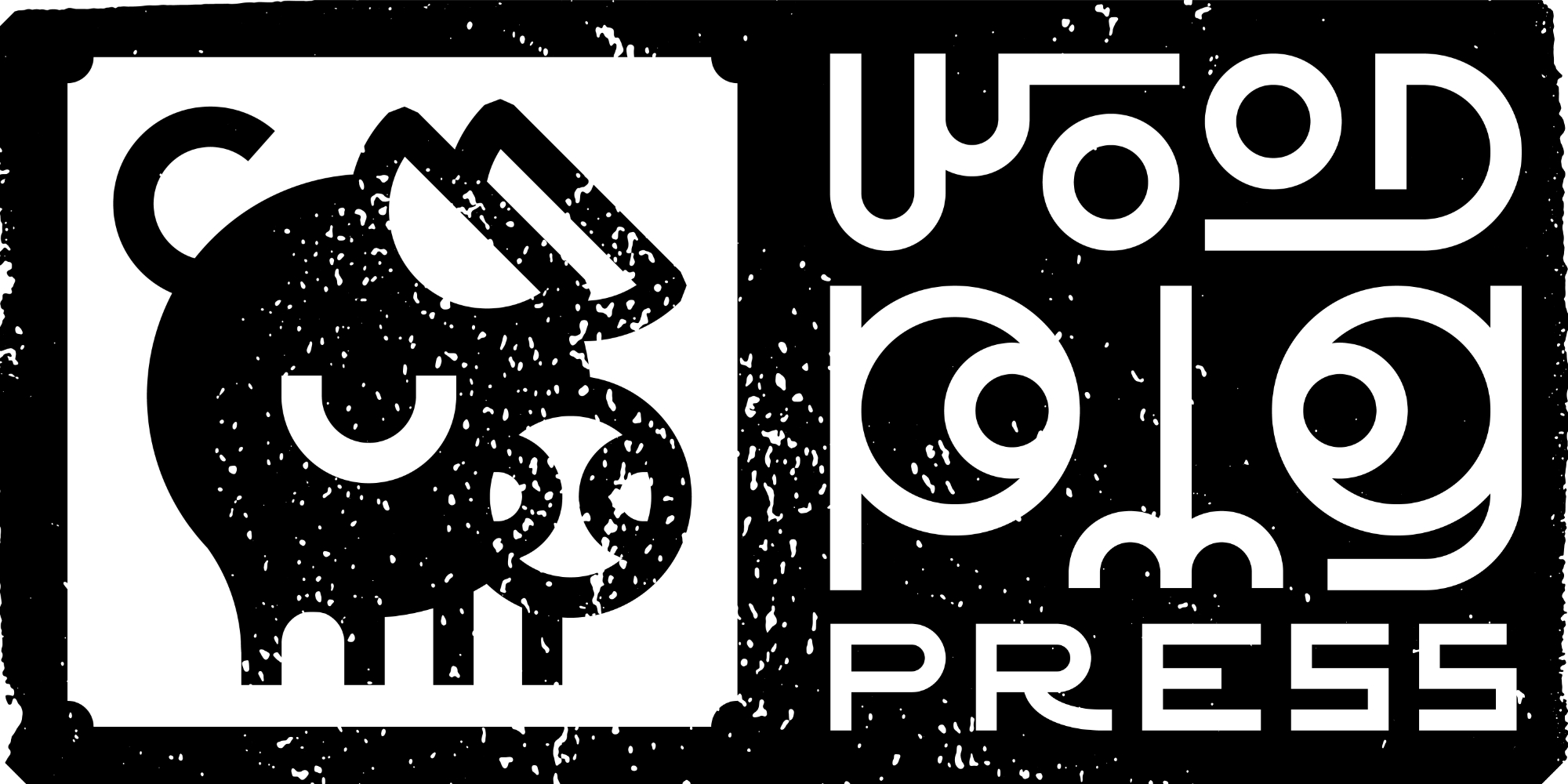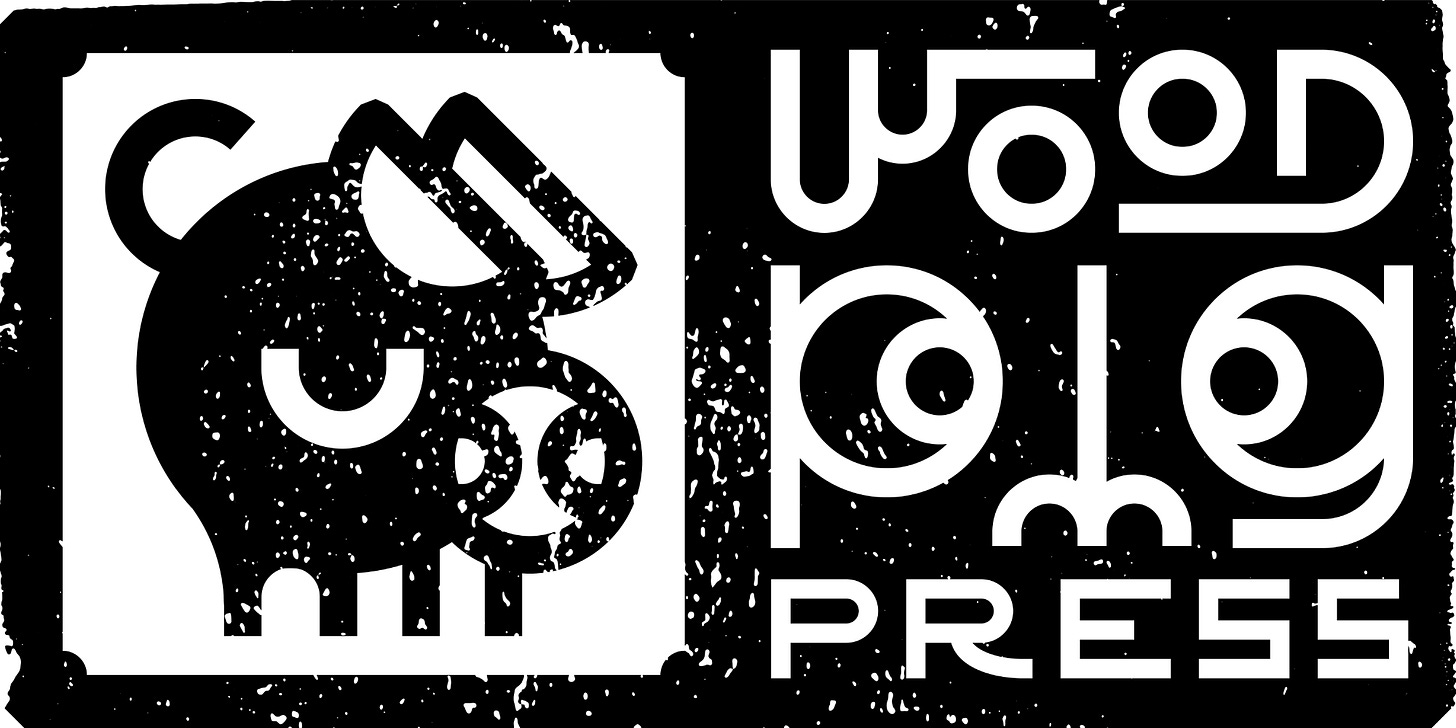
Diary of a Micro-Press, Week 3 – in which I interview indie crime writer Dylan Jones
The last few weeks have been very busy, mostly taken up with illustrating and designing the cover for Tidelands, Part IV: The Sleepers (sneak peek below…), and lots of meetings with book people. I’m still writing these up, and trying to decipher my own cryptic note-taking, but I’ll be sharing them over the next few posts.
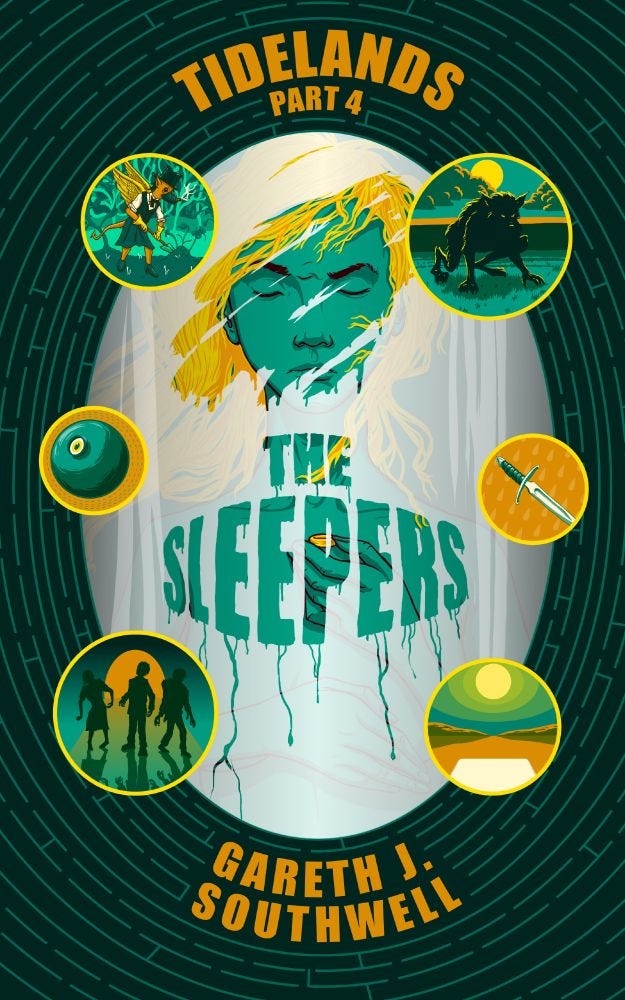
The first of these meetings was a Zoom interview with indie author Dylan Jones, more widely known under his pen names Rhys Dylan, for crime fiction (the DCI Warlow series), and DC Farmer, for comedy horror (the Hipposync Archives series), though he has also written mystery thrillers and children’s books. Dylan is hugely successful, and we spent a fascinating hour unpicking the basis of this, to see if there were any transferable lessons that I could apply to WoodPig Press.
Dylan too has set up his own imprint – Wyrmwood Books – which he uses to publish all the titles written under his various pen names. However, like many authors, Dylan’s recent success hides a long, hard, trial-and-error-strewn learning curve. The result of this is now a very streamlined process, focusing on digital sales through Amazon and Kindle Unlimited, using Facebook ads, and all driven by a punishing publishing schedule.
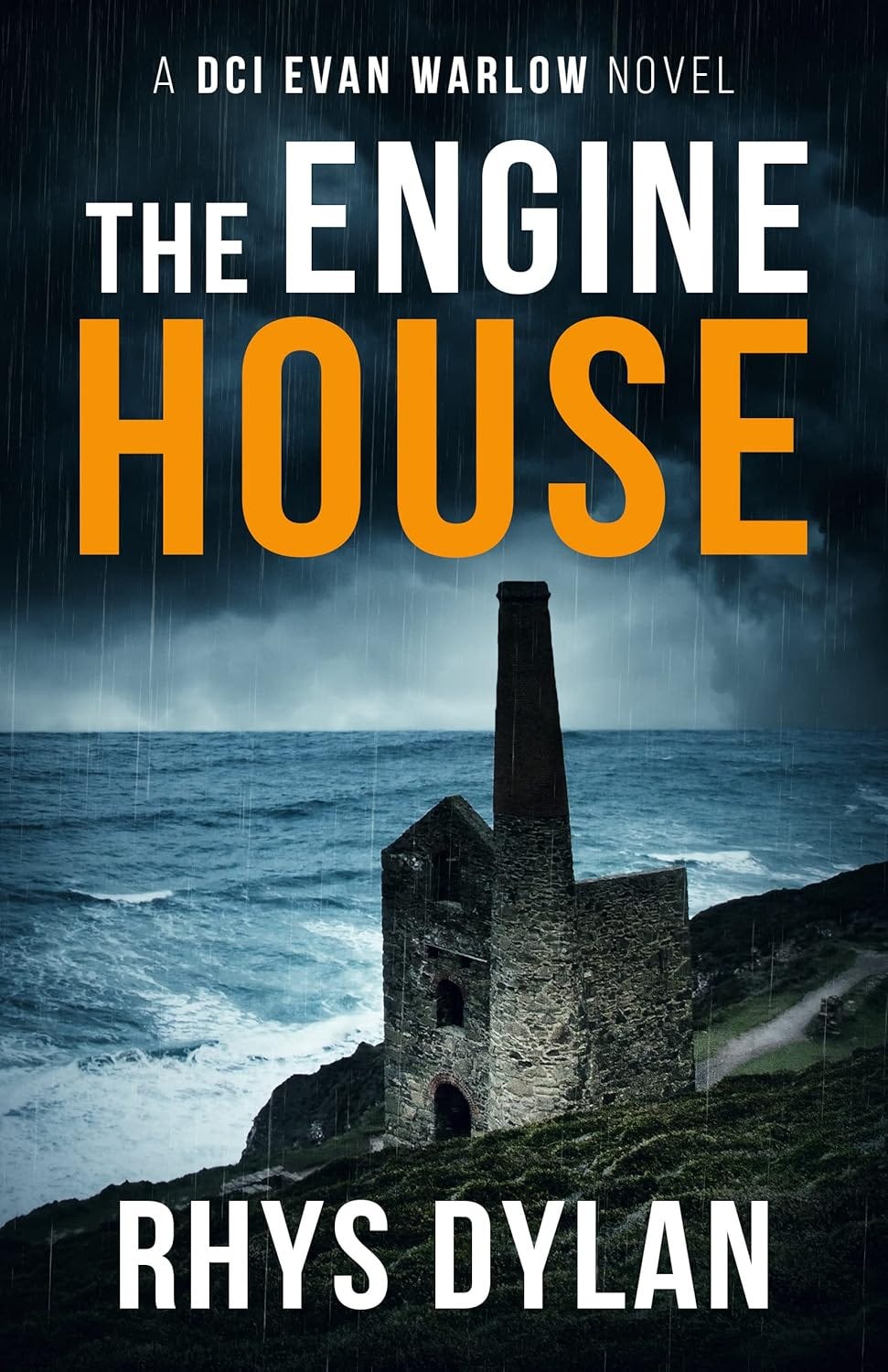
First of all, let’s look at the decision to focus on digital publishing. Dylan told me that 96% of his sales are digital, and half of his income comes through Amazon’s Kindle Unlimited.1 As such, Dylan has eschewed the “wide” approach (to use indie author parlance), and put all his eggs in the Amazon basket. This works well for popular genres (crime would be a good example), and for the type of reader who ploughs through a high volume of ebooks (the typical KU subscriber).
Well-crafted and micro-targeted Facebook ads drive traffic to his Amazon page, and over the years he has built up a loyal following, which he cultivates via his newsletter. The DCI Warlow series is his longest and most successful (currently on book 16, with book 17 due out in July 2025), and the whole process is intended to funnel new readers to book 1 (he doesn’t advertise the later books), which is permanently priced at an enticing £1.99, with later instalments at £3.99.2 He spends about £5 a day on ads in the UK, US, Canada and Australia respectively, and his marketing budget is about 10% to 20% of income. In these two series, he publishes four crime books a year and two comedy horror, so there is never long to wait for fans of either to get the next instalment.
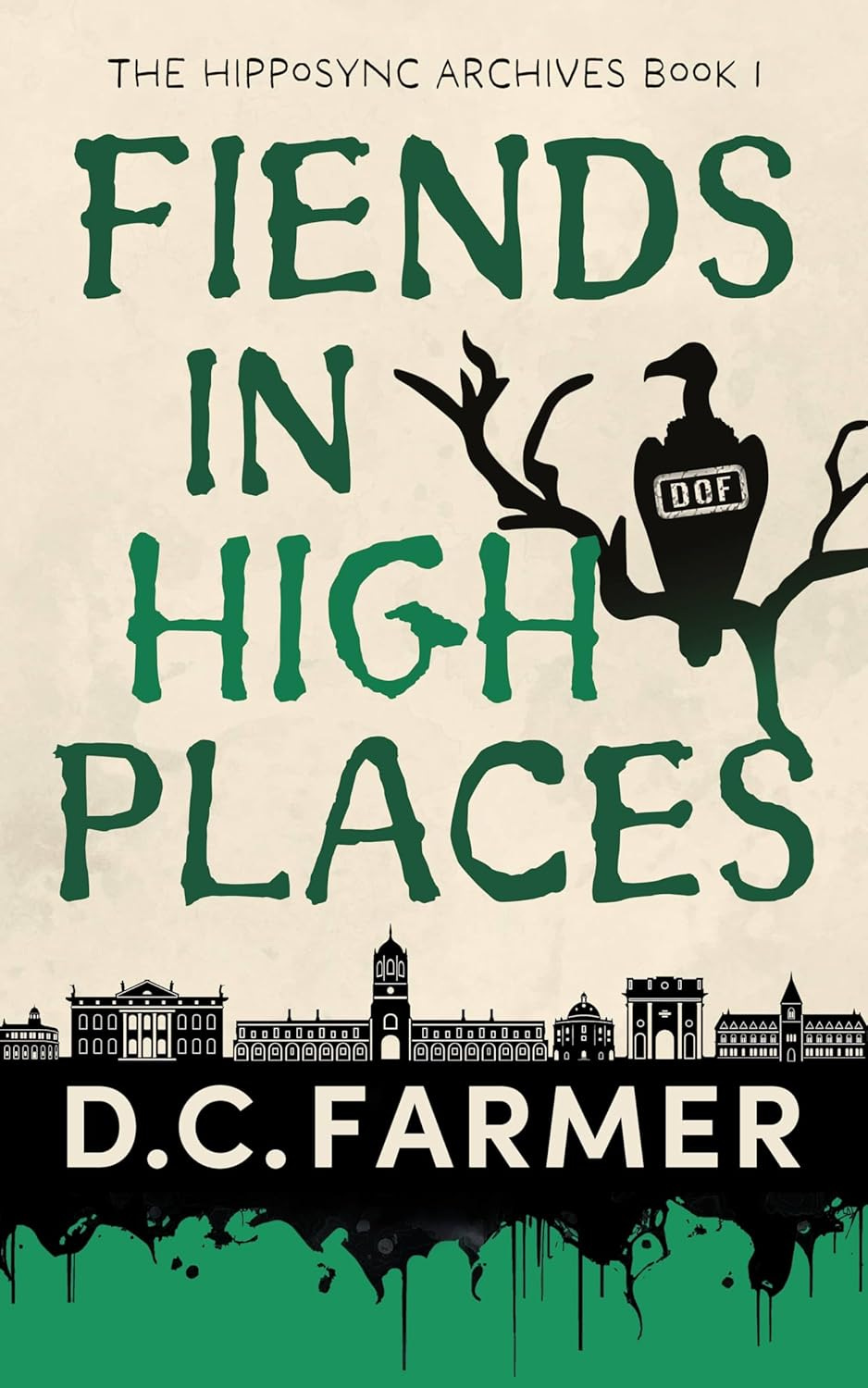
“What about Amazon ads?” I asked. A little, he says, but only for defensive advertising – that is, for when an Amazon customer types in “DCI Warlow” or “Rhys Dylan”, etc – which stops other authors from sneakily poaching his readers for their own titles in the same genre.
What about bookshops and libraries? Or direct selling from his website? Given his sales profile (digital vs print), it’s simply not worth it, he says, and KU wouldn’t allow him to sell his own ebooks anyway. He does publish paperbacks through Ingram Spark,3 but doesn’t market to bookshops or libraries, and if they want copies then they have to buy them as a firm sale (no returns). He also doesn’t really do festival appearances, public readings, or any other staples of the trad book promo scene – since he’s making a very nice living from his digital first strategy, why should he need to? Nor does he pay for reviews or in any way actively cultivate them (book 1 of the DCI Warlow series is currently at 18.5k with an average of 4.5/5 stars, which is none too shabby!).
What about other costs? He pays for professional copy-editing, proofreading, and cover design, but does his own formatting using Vellum. He sends out ARC copies to his newsletter subscribers, who inevitably pick up the last few typos or spot minor inconsistencies, so that’s very useful.
And that’s it. All of which makes it seem like a formula: write to market in a popular genre, have a long series, price book 1 cheaply, be exclusive to Amazon and in KU, and then market via Facebook ads. And perhaps it is, to an extent, but that of course would be to ignore the quality of the writing and the hard work that Dylan has put into honing his marketing craft and building his readership.
But one indication that this “formula” does work is that Dylan was able to apply it to his comedy horror series – the Hipposync Archives – which had been published a few years earlier, but sales of which were languishing. However, after changing the covers and titles, tweaking the branding to make it more commercially focused, and then applying the marketing lessons he’d learnt from promoting the DCI Warlow series, he was able to spectacularly improve sales.
So what can WoodPig Press learn from all of this? First of all, that going “narrow” (Amazon exclusive), focusing on digital, and promoting via Facebook ads, really can pay off.4 But applying these lessons would seem to pull me in the other direction from where I’m headed. One of my primary goals in setting up WoodPig Press is to try to imbue the publishing process with my own values. This isn’t to cast shade on Dylan’s achievements or decisions – he recognises the uneasy compromises that all writers must make in their dealings with the tech giants, and they’re ones none of us can completely avoid – but for me, going all-in with Amazon and employing Facebook for anything is not an option (I’ll write a post expanding on why at some future point).
There is also the issue of writing to market, picking commercial genres and adopting publishing schedules that lend themselves to high sales volume. Again, this isn’t something I am “against” – I’m hugely admiring and envious! – but I feel my own creative star drawing me in more eccentric and quirky directions, and those strategies are less likely to work for that (I’ve tried them). My current plan is therefore to make a virtue of my fringe tastes and to focus on publishing books that reach out to like-minded people, perhaps using less conventional and more personal marketing methods – a brick through your window with a note attached, maybe? Is that still a thing…?
My thanks to Dylan Jones for his time, generosity and candour. Please check out his books here.
- Their digital subscription service that requires that your ebook be exclusive to Amazon (it doesn’t affect other formats, which you are free to distribute elsewhere). ↩︎
- This pricing has changed – it used to be £0.99 for the first book, but I guess his success – with 18k plus reviews on book 1 of DCI Warlow – means that he can up his series entry price. ↩︎
- The route officially recommended by ALLi (the Alliance of Independent Authors) to make your book available to bookshops and libraries. ↩︎
- I do note that Dylan’s Amazon exclusivity would mean that his ebooks are not available to libraries, but I guess this isn’t a significant enough a loss of income to bother him. ↩︎
